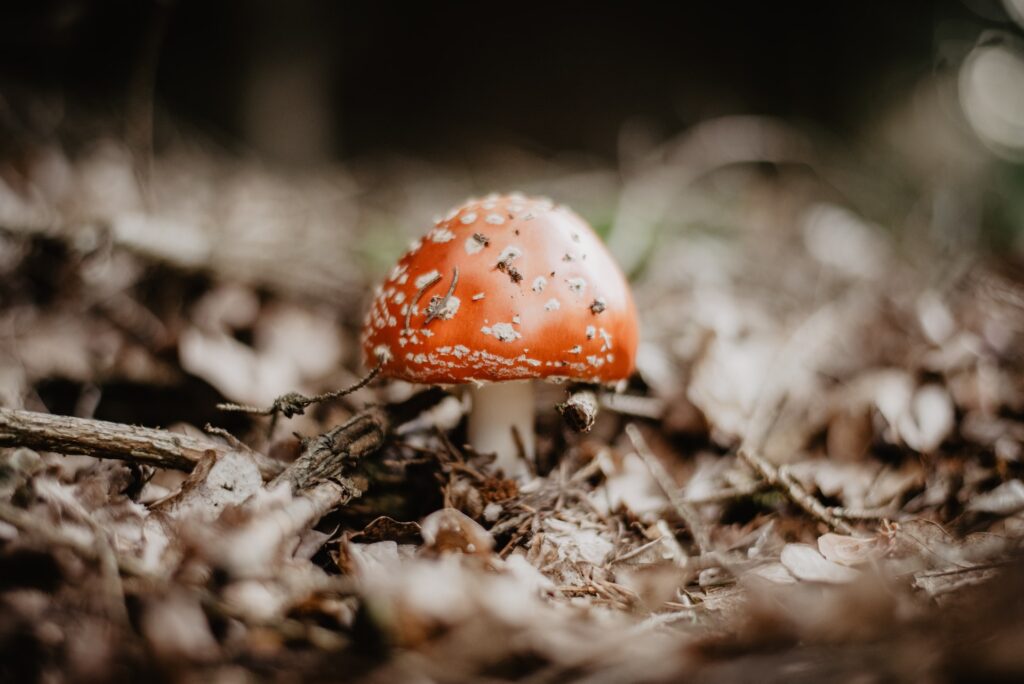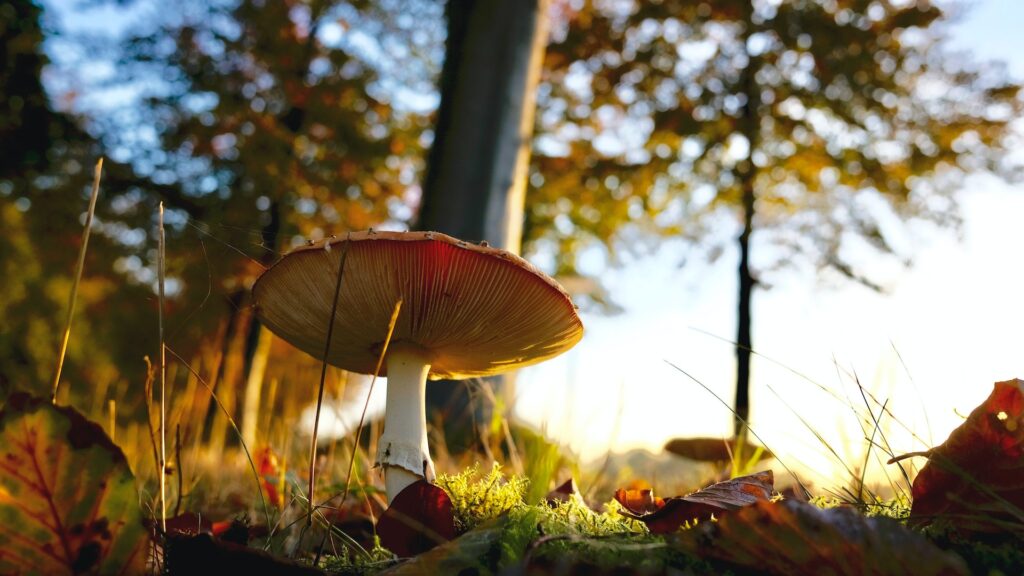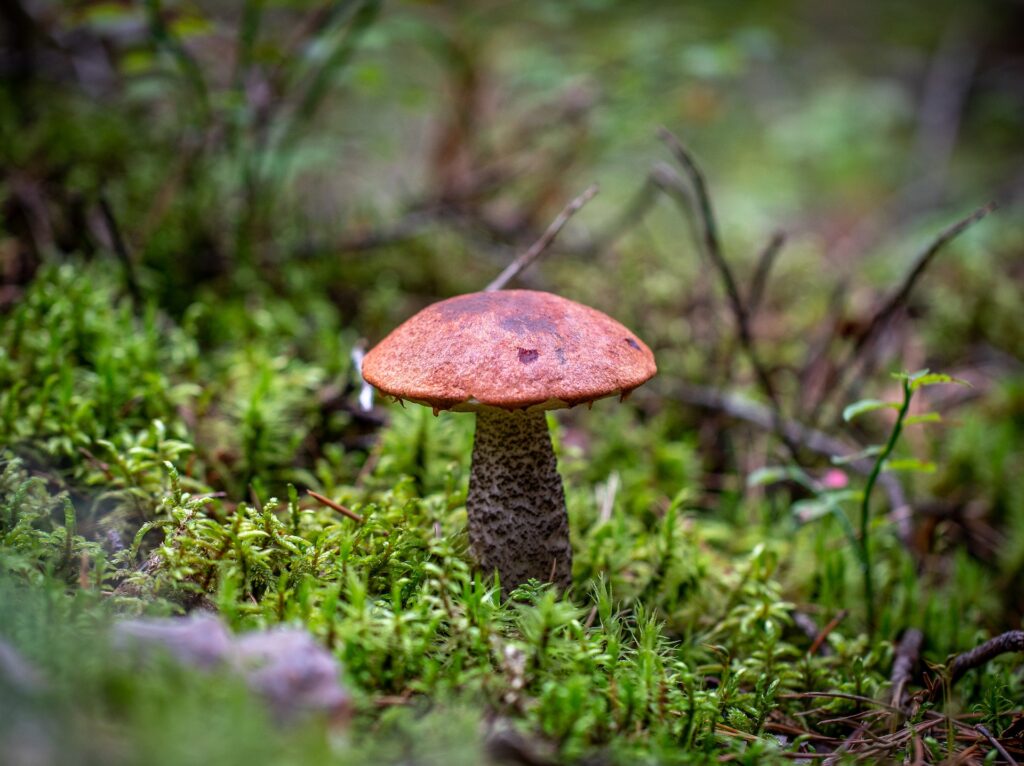Historical Use and Legal Status of Psilocybin Mushrooms
The use of psilocybin mushrooms, commonly known as magic mushrooms or simply shrooms, dates back thousands of years across various cultures worldwide. These fungi, containing the psychoactive compound psilocybin, have long been revered for their powerful mind-altering effects and spiritual significance. Mesoamerican cultures, such as the Aztecs and the Maya, held these mushrooms in high regard, using them in religious rituals and ceremonies to communicate with the gods and gain enlightenment. In other parts of the world, such as Europe and Africa, archeological evidence suggests that the use of psilocybin mushrooms was also prevalent in prehistoric times.
Despite their ancient and widespread use, the legal status of psilocybin mushrooms has undergone a dramatic shift in the 20th century. The criminalization of these fungi began in the 1960s and 1970s as part of the broader “war on drugs” initiative in the United States and other Western countries. This movement aimed to suppress the recreational use of various substances, including psychedelics like psilocybin, which were perceived as threats to public health and social order. In 1971, the United Nations Convention on Psychotropic Substances classified psilocybin as a Schedule I substance, effectively prohibiting its use, production, and distribution in most countries around the world.
The legal status of psilocybin mushrooms varies across jurisdictions, with some countries enforcing strict prohibitions, while others allow for limited use or cultivation. In the United States, psilocybin is classified as a Schedule I controlled substance under the Controlled Substances Act, making it illegal to possess, manufacture, or distribute these fungi. However, recent years have witnessed a shift in public opinion and policy surrounding psilocybin and other psychedelics. Several cities and states, such as Denver, Colorado, and Oregon, have moved towards decriminalizing or legalizing the possession and use of psilocybin mushrooms for personal or therapeutic purposes.
The Medical Potential of Psilocybin: Mental Health and Beyond
In recent years, there has been a resurgence of interest in the potential medical applications of psilocybin and other psychedelic substances. This renewed focus stems from an increasing body of scientific evidence highlighting the potential benefits of psilocybin for various mental health conditions, as well as its possible role in promoting overall well-being.

One of the most promising areas of research is the use of psilocybin in the treatment of mental health disorders such as depression, anxiety, and post-traumatic stress disorder (PTSD). Several clinical trials conducted over the past two decades have shown that psilocybin-assisted therapy can lead to significant and lasting improvements in symptoms of these conditions. For example, a study conducted at Johns Hopkins University found that a single dose of psilocybin, administered in a controlled therapeutic setting, led to rapid and sustained reductions in depressive symptoms among patients with treatment-resistant depression. Similarly, research conducted at the New York University and the University of California Los Angeles has demonstrated that psilocybin-assisted therapy can effectively reduce anxiety and depression in patients with advanced-stage cancer.
Beyond its potential role in treating specific mental health conditions, psilocybin has also been shown to promote overall psychological well-being and enhance various aspects of personal growth. Studies have found that psilocybin can increase measures of openness, creativity, and emotional intelligence, as well as facilitate a greater sense of connection to oneself, others, and the natural world. Furthermore, numerous anecdotal reports and scientific studies have documented the ability of psilocybin to induce profound mystical or spiritual experiences, which can have lasting positive effects on one’s mental health and quality of life.
While the medical potential of psilocybin is undoubtedly promising, it is essential to recognize that further research is needed to fully understand the mechanisms underlying its therapeutic effects, as well as to establish standardized protocols for its safe and effective use in clinical settings. Nevertheless, the growing body of evidence supporting the benefits of psilocybin for mental health and well-being offers a compelling case for reassessing the legal status of this substance and for expanding access to psilocybin-assisted therapy for those in need.
Decriminalization vs. Legalization: Understanding the Difference
As the conversation surrounding psilocybin mushrooms and other psychedelic substances gains momentum, it is essential to understand the distinctions between decriminalization and legalization. These two approaches to drug policy reform have different implications for the accessibility, regulation, and societal perception of substances like psilocybin.
Decriminalization refers to the process of reducing or eliminating criminal penalties associated with the possession, use, or cultivation of a substance, while still maintaining certain legal restrictions. In the context of psilocybin mushrooms, decriminalization often entails removing criminal sanctions for personal possession and use, while the sale and distribution of the fungi remain illegal. Decriminalization aims to prioritize public health and harm reduction over punitive measures, acknowledging that the criminalization of drug users can often exacerbate the very problems that drug policies are intended to address. By decriminalizing psilocybin, governments can redirect resources towards education, prevention, and treatment programs, rather than focusing on arrests and incarceration.
Legalization, on the other hand, involves the establishment of a legal and regulated market for the production, sale, and consumption of a substance. Legalization goes beyond decriminalization by creating a framework for the controlled distribution and use of substances like psilocybin. This approach allows governments to regulate the quality and safety of the product, impose age restrictions, and generate tax revenue from its sale. Moreover, legalization can help to dismantle the illicit market and associated criminal activity by providing a safe and regulated alternative for consumers.
Both decriminalization and legalization have their merits and challenges, and the most appropriate approach may vary depending on the specific substance and the broader social, political, and cultural context. In the case of psilocybin mushrooms, some jurisdictions, such as Denver and Oakland, have opted for decriminalization, while others, like the state of Oregon, have taken steps towards establishing a regulated, therapeutic use model. As the debate over psilocybin policy reform continues, understanding the nuances between decriminalization and legalization is crucial for crafting effective and compassionate approaches to drug policy that prioritize public health, safety, and individual rights.
Global Perspectives: Comparing Psilocybin Laws around the World
Psilocybin laws and regulations vary widely across the globe, reflecting diverse cultural perspectives, historical experiences, and approaches to drug policy. A closer look at the legal status of psilocybin mushrooms in different countries can provide valuable insights into the complexities and nuances of international drug policy.
In the United States, psilocybin is classified as a Schedule I controlled substance under federal law, making it illegal to possess, manufacture, or distribute. However, several cities and states have recently taken steps to decriminalize or legalize the possession and use of psilocybin mushrooms for personal or therapeutic purposes, reflecting a broader shift in public opinion and policy towards psychedelics.
In contrast, some European countries have adopted more liberal approaches to psilocybin regulation. For example, the Netherlands permits the sale of “magic truffles,” which are underground sclerotia containing psilocybin, in licensed “smart shops.” While the cultivation and sale of psilocybin mushrooms are technically illegal, the Dutch government has effectively created a legal loophole by allowing the sale of these closely related products. Similarly, in Spain, the cultivation and consumption of psilocybin mushrooms are not explicitly illegal, though the sale and distribution remain prohibited.
In other parts of the world, such as Latin America, the legal status of psilocybin mushrooms is often intertwined with indigenous cultural practices and religious traditions. In Mexico, where the use of psilocybin mushrooms has a long and rich history, the fungi are considered sacred and are legally protected for use in traditional ceremonies. However, the possession, sale, and distribution of psilocybin mushrooms outside of these contexts remain illegal.
Meanwhile, countries like Australia and Canada maintain strict prohibitions on the possession, sale, and cultivation of psilocybin mushrooms, with few exceptions for research or medical purposes. However, recent developments in both countries suggest that public opinion and policy surrounding psychedelics may be shifting, with growing interest in exploring the potential benefits of substances like psilocybin for mental health and well-being.
Arguments for and against Psychedelic Legalization
The debate over psychedelic legalization, including substances like psilocybin, has sparked various arguments from proponents and opponents. Understanding these perspectives is crucial for engaging in a well-informed and balanced discussion on the potential risks and benefits associated with the legal status of these substances.
Arguments for psychedelic legalization often emphasize the therapeutic potential of these substances, as numerous studies have demonstrated their efficacy in treating mental health disorders such as depression, anxiety, and PTSD. Proponents argue that legalizing and regulating psychedelics would allow for better access to these potentially life-changing treatments, particularly for those with treatment-resistant conditions. Additionally, the legalization of psychedelics could encourage further research into their medical applications, ultimately helping to destigmatize their use and integrate them into mainstream mental health care.

Another argument in favor of psychedelic legalization is the potential for harm reduction. By regulating the production and distribution of these substances, governments can ensure the quality and safety of the products, reducing the risks associated with the use of contaminated or adulterated substances. Legalization would also enable the implementation of education and prevention programs, which could help users make informed decisions about their consumption and minimize the potential for harm.
On the other hand, opponents of psychedelic legalization express concerns about the potential risks associated with increased access to these powerful mind-altering substances. Some argue that legalizing psychedelics could lead to increased recreational use and experimentation, potentially resulting in negative consequences such as psychological distress, addiction, or dangerous behaviors. Additionally, critics contend that the long-term effects of psychedelic use are not yet fully understood, and caution should be exercised before making these substances widely available.
Another argument against legalization is the potential strain on public health and safety resources. Opponents express concerns that increased use of psychedelics could lead to a rise in emergency room visits, psychiatric hospitalizations, or incidents of impaired driving, placing additional burdens on the healthcare system and law enforcement agencies.
The debate over psychedelic legalization encompasses a diverse range of perspectives, reflecting the complexity of the issues at hand. As the conversation surrounding psychedelics continues to evolve, it is essential to consider the potential risks and benefits associated with the legal status of these substances, as well as the broader social, economic, and public health implications of policy reform.
The Role of Psychedelic Research in Shaping Public Policy
The role of psychedelic research in shaping public policy cannot be overstated, as scientific evidence and empirical findings play a crucial part in informing and influencing the decision-making process surrounding psychedelics like psilocybin. As the body of knowledge on the potential benefits, risks, and applications of these substances grows, policymakers can draw upon this evidence to craft policies that balance public health, safety, and individual rights.

One critical aspect of psychedelic research is its ability to challenge prevailing misconceptions and stigma surrounding these substances, which have often been rooted in historical, cultural, and political factors rather than scientific evidence. By shedding light on the therapeutic potential of psychedelics for various mental health conditions, research has helped to reframe the narrative around these substances, emphasizing their potential benefits and medical applications. This shift in understanding has played a significant role in garnering public support for policy reform, as evidenced by recent decriminalization and legalization efforts in various jurisdictions.
In addition to demonstrating the potential benefits of psychedelics, research also plays a vital role in identifying potential risks and establishing guidelines for safe and effective use. As policymakers grapple with the complexities of regulating psychedelics, scientific findings can help inform decisions about appropriate dosage, administration methods, and contraindications, as well as guide the development of education and harm reduction programs. Furthermore, research can assist in identifying areas where further study is needed, helping to prioritize resources and shape the future direction of psychedelic policy.
Psychedelic research can serve as a valuable tool for evaluating the impact of policy changes and informing ongoing discussions about the most effective approaches to drug regulation. By systematically studying the outcomes of decriminalization or legalization efforts, researchers can assess the effects of these policies on public health, safety, and overall well-being, providing valuable insights that can guide the refinement and adaptation of drug policies over time.
The role of psychedelic research in shaping public policy is multifaceted and indispensable. By providing a solid evidence base for the potential benefits, risks, and applications of these substances, research serves as a foundation upon which informed and balanced policy decisions can be made. As the conversation surrounding psychedelics continues to evolve, the integration of scientific evidence and empirical findings into policymaking will be essential for ensuring that drug policies prioritize public health, safety, and individual rights.
Navigating the legal system with regard to psilocybin mushrooms can be a complex and challenging endeavor, particularly given the diverse and evolving landscape of drug policies around the world. For psilocybin users and advocates, it is crucial to have an understanding of the legal status of these fungi in one’s jurisdiction, as well as the potential risks and consequences associated with their possession, use, or cultivation. This awareness can help individuals make informed decisions about their engagement with psilocybin and advocate for policy reform from an informed perspective.
First and foremost, it is essential for psilocybin users and advocates to familiarize themselves with the specific laws and regulations governing psilocybin mushrooms in their jurisdiction. This may involve researching local, regional, or national legislation, as well as consulting with legal professionals or advocacy organizations for guidance. It is important to note that the legal status of psilocybin can vary significantly across different countries and even within the same country, as seen in examples like the United States, where individual cities and states have pursued decriminalization or legalization efforts.
In addition to understanding the legal status of psilocybin, users and advocates should also be aware of their rights and protections under the law. This may include knowledge of search and seizure protocols, the right to remain silent, and the right to legal representation in the event of an arrest or detention. By knowing their rights, individuals can better protect themselves and navigate the legal system with confidence.
For those interested in advocating for policy reform, becoming involved in local or national organizations that promote psychedelic research, harm reduction, or policy change can be an effective way to contribute to the conversation surrounding psilocybin and other psychedelics. These organizations often provide resources, networking opportunities, and platforms for individuals to engage with policymakers, researchers, and other stakeholders in the field.
Engaging in open and honest dialogue with friends, family, and community members about the potential benefits and risks of psilocybin can help to build understanding and support for policy reform. By sharing personal experiences, discussing scientific research, and dispelling misconceptions about psilocybin, users and advocates can contribute to a more informed and balanced conversation about the role of psychedelics in society.
Navigating the legal system as a psilocybin user or advocate requires a solid understanding of the laws and regulations governing these fungi, as well as a commitment to advocating for change from an informed and compassionate perspective. By staying informed, knowing their rights, and engaging in dialogue with others, individuals can help to shape a more just and equitable future for psilocybin and other psychedelic substances.
The Future of Psilocybin: Emerging Trends and Potential Outcomes
The future of psilocybin is marked by a growing interest and dynamic shift in societal attitudes towards these powerful substances. As scientific research continues to illuminate their therapeutic potential, and grassroots movements advocate for policy reform, the landscape surrounding psilocybin is rapidly evolving. Several emerging trends and potential outcomes are worth noting as we consider the future trajectory of psilocybin and its place in society.
One significant trend is the increasing medicalization of psilocybin, as its potential therapeutic applications for mental health disorders gain recognition and validation. As more clinical trials demonstrate its efficacy in treating conditions such as depression, anxiety, and PTSD, it is likely that regulatory agencies will consider approving psilocybin-assisted therapy for specific indications. This may lead to the establishment of specialized clinics or treatment centers where patients can access psilocybin therapy under the supervision of trained professionals, much like the current model for ketamine-assisted therapy.
Another potential outcome is the continued decriminalization and legalization of psilocybin mushrooms at the local, regional, or national levels. As seen in recent examples like Denver, Oakland, and the state of Oregon, there is a growing movement to reevaluate and reform drug policies surrounding psilocybin and other psychedelics. These efforts often emphasize the need for a harm reduction and public health-oriented approach, recognizing that criminalization can exacerbate the very problems that drug policies are intended to address. As more jurisdictions adopt decriminalization or legalization measures, it is possible that a domino effect will occur, prompting others to consider similar policy reforms.
The integration of psilocybin and other psychedelics into mainstream culture is another potential trend in the future landscape of these substances. As public opinion shifts, and the stigma surrounding psychedelics diminishes, we may see a greater acceptance and normalization of their use for therapeutic, spiritual, or personal growth purposes. This could also lead to the development of new industries and businesses centered around psychedelic experiences, such as retreat centers, guided trips, or integration coaching services.